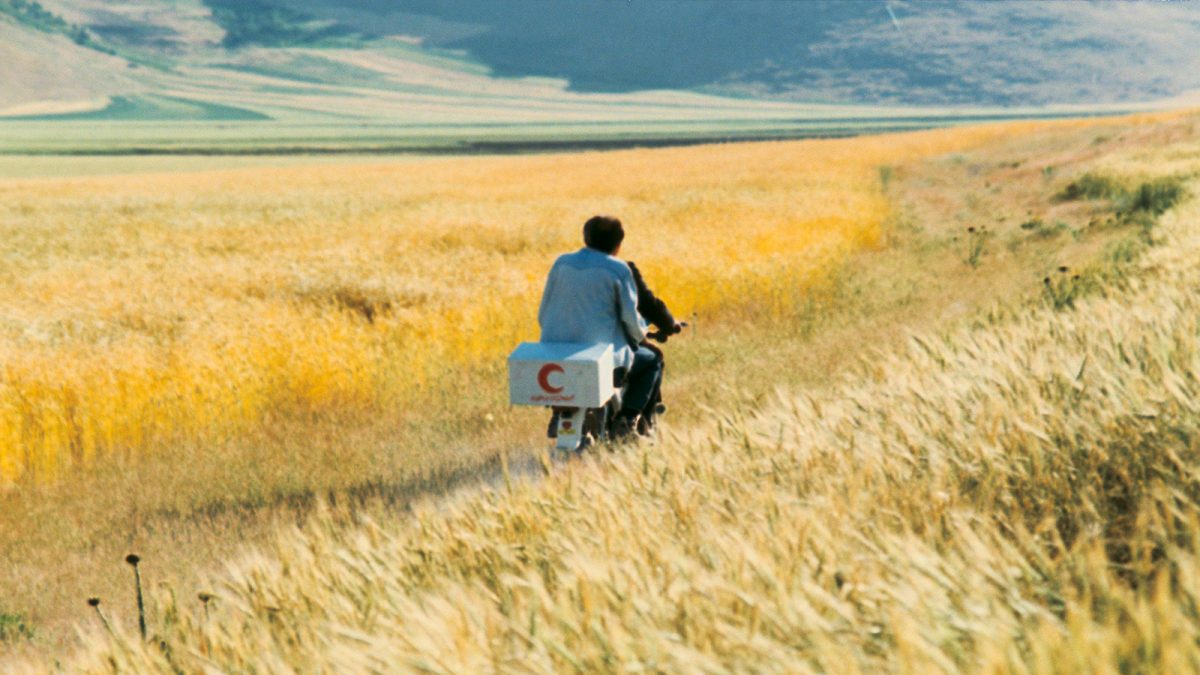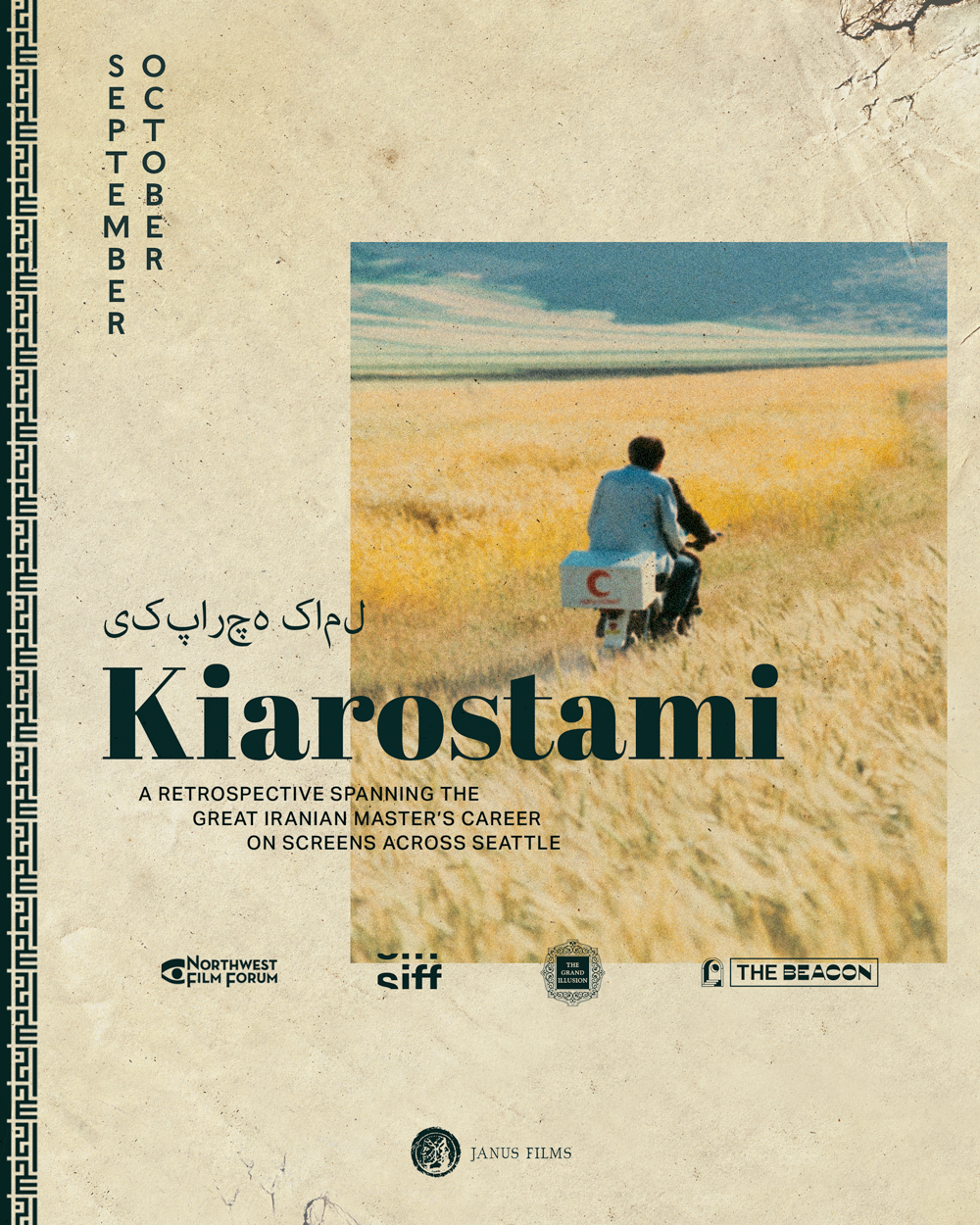Retrospective Program:
Sep. 14, 7:30pm at NWFF
(Abbas Kiarostami, Iran, 1987, 83 min)
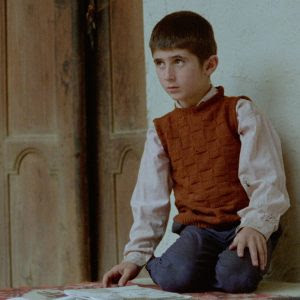
The first film in Kiarostami’s sublime, interlacing Koker Trilogy takes a simple premise—a boy searches for the home of his classmate, whose school notebook he has accidentally taken— and transforms it into a miraculous child’s-eye adventure of the everyday. As our young hero zigzags determinedly across two towns, aided (and sometimes misdirected) by those he encounters, his quest becomes both a revealing portrait of rural Iranian society in all its richness and complexity and a touching parable about the meaning of personal responsibility. Sensitive and profound, Where is the Friend’s House? is shot through with all the beauty, tension, and wonder a single day can contain.
Description courtesy of Criterion Collection.
Sep. 15, 7:30pm at NWFF
(Abbas Kiarostami, Iran, 1974, 70 min)
 Kiarostami’s first feature focuses on a boy in a provincial city so avid to get to Tehran to see a soccer match that he’ll lie to adults and cheat other kids. A quest film that’s also a study of youthful obsession, it’s filmed in edgy black and white with a quiet energy that matches its hero’s. The Traveler has an acridly ironic ending and one of the best performances by a child in Kiarostami’s early work. Kiarostami’s first feature focuses on a boy in a provincial city so avid to get to Tehran to see a soccer match that he’ll lie to adults and cheat other kids. A quest film that’s also a study of youthful obsession, it’s filmed in edgy black and white with a quiet energy that matches its hero’s. The Traveler has an acridly ironic ending and one of the best performances by a child in Kiarostami’s early work.
Description courtesy of Godfrey Cheshire.
Sep. 20, 5pm at SIFF Film Center
Sep. 20, 7:15pm at SIFF Film Center
Sep. 21, 1pm at SIFF Film Center
Sep. 21, 7:15pm at SIFF Film Center
Sep. 22, 5:45pm at SIFF Film Center
(Abbas Kiarostami, Iran & France, 1997, 99 min)
 Winner of the Palme d’Or at the 1997 Cannes Film Festival, Kiarostami’s Taste of Cherry is an emotionally complex meditation on life and death. Middle-aged Mr. Badii (Homayoun Ershadi) drives through the hilly outskirts of Tehran, searching for someone to rescue or bury him. Along the way, he picks up three passengers, all from different walks of life, eliciting different views on mortality and individual choice. Winner of the Palme d’Or at the 1997 Cannes Film Festival, Kiarostami’s Taste of Cherry is an emotionally complex meditation on life and death. Middle-aged Mr. Badii (Homayoun Ershadi) drives through the hilly outskirts of Tehran, searching for someone to rescue or bury him. Along the way, he picks up three passengers, all from different walks of life, eliciting different views on mortality and individual choice.
Description courtesy of Criterion Collection.
Sep. 21, 3:15pm at SIFF Film Center
Sep. 22, 3:30pm at SIFF Film Center
(Abbas Kiarostami, Iran, 1992, 95 min)
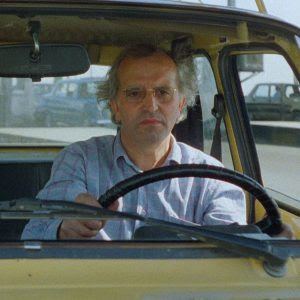 In the aftermath of the 1990 earthquake in Iran that left fifty thousand dead, Kiarostami returned to Koker, where his camera surveys not only devastation but also the teeming life in its wake. Blending fiction and reality into a playful, poignant road movie, And Life Goes On follows a film director who, along with his son, makes the trek to the region in hopes of finding out if the young boys who acted in Where is the Friend’s House? are among the survivors, and discovers a resilient community pressing on in the face of tragedy. Finding beauty in the bleakest of circumstances, Kiarostami crafts a quietly majestic ode to the best of the human spirit. Description courtesy of Criterion Collection.
Sat Sep. 28, 6:45pm at Grand Illusion Cinema
Sun Sep. 29, 4:30pm at Grand Illusion Cinema
(Abbas Kiarostami, Iran & France, 1994, 103 min)
 Kiarostami takes metanarrative gamesmanship to masterful new heights in the final installment of The Koker Trilogy. Unfolding “behind the scenes” of And Life Goes On, this film traces the complications that arise when the romantic misfortune of one of the actors—a young man who pines for the woman cast as his wife, even though, in real life, she will have nothing to do with him—creates turmoil on set and leaves the hapless director caught in the middle. An ineffably lovely, gentle human comedy steeped in the folkways of Iranian village life, Through the Olive Trees peels away layer after layer of artifice as it investigates the elusive, alchemical relationship between cinema and reality. Kiarostami takes metanarrative gamesmanship to masterful new heights in the final installment of The Koker Trilogy. Unfolding “behind the scenes” of And Life Goes On, this film traces the complications that arise when the romantic misfortune of one of the actors—a young man who pines for the woman cast as his wife, even though, in real life, she will have nothing to do with him—creates turmoil on set and leaves the hapless director caught in the middle. An ineffably lovely, gentle human comedy steeped in the folkways of Iranian village life, Through the Olive Trees peels away layer after layer of artifice as it investigates the elusive, alchemical relationship between cinema and reality.
Description courtesy of Criterion Collection.
Fri Sep. 27 6:45pm at Grand Illusion Cinema
Sat Sep. 28 4:30pm at Grand Illusion Cinema
Sun Sep. 29 6:45pm at Grand Illusion Cinema
35mm print!
(Abbas Kiarostami, Iran, 1990, 98 min)
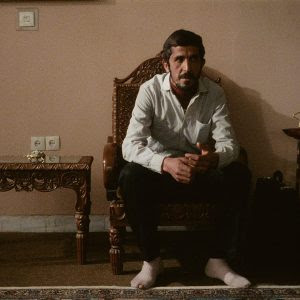
This fiction-documentary hybrid uses a sensational real-life event—the arrest of a young man on charges that he fraudulently impersonated the well-known filmmaker Mohsen Makhmalbaf—as the basis for a stunning, multilayered investigation into movies, identity, artistic creation, and existence, in which the real people from the case play themselves. With its universal themes and fascinating narrative knots, Close-Up—one of Kiarostami’s most radical, brilliant works—has resonated with viewers around the world.
Description courtesy of Criterion Collection.
Oct. 5, 6:30 pm at The Beacon
Oct. 6, 1:30 pm at The Beacon
(Abbas Kiarostami, Iran & France, 1999, 118 min)
 A TV crew from Tehran arrives in a remote Kurdish village to film an unusual funeral ceremony but are stymied when the old woman they expect to die clings to life. A fable-like story about professional and personal frustration, this droll drama is the most tantalizingly opaque and allusive of Kiarostami’s films, containing numerous references to poetry and several key figures (including the old woman) who are never seen. A TV crew from Tehran arrives in a remote Kurdish village to film an unusual funeral ceremony but are stymied when the old woman they expect to die clings to life. A fable-like story about professional and personal frustration, this droll drama is the most tantalizingly opaque and allusive of Kiarostami’s films, containing numerous references to poetry and several key figures (including the old woman) who are never seen.
Description courtesy of Godfrey Cheshire.
Oct. 6, 4:30 pm at The Beacon
(Abbas Kiarostami, Iran, 1975-1981, 87 min)
The Colors (1976, 16 min)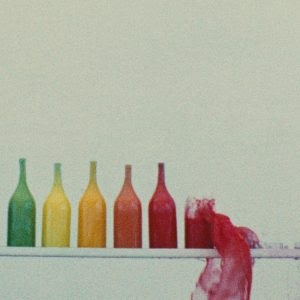
Ostensibly also a film for children, this picture-book essay about the range of hues that brighten our world has the air of a delightfully playful formalistic exercise. As a narrator runs though the colors one by one, Kiarostami shows us where each appears in nature and human life (which occasions some great views of pre-revolutionary consumer culture in Iran). Of course, a little boy is featured—in one memorable sequence, he fantasizes about being a race-car driver.
Two Solutions for One Problem (1975, 6 min)
This simple moral tale seems to prefigure Where is the Friend’s House? Two young schoolboys, Dara and Nader, are friends until Dara returns Nader’s notebook torn and Nader retaliates in kind, setting off an escalating battle that leads to destruction of property and physical injury. In the second solution, Dara realizes his offense and repairs the notebook, preserving the peace and the friendship. The film is shot mostly in close-ups, with a narrator drolly chronicling the action.
Orderly or Disorderly (1981, 17 min)
The first shot shows students descending a staircase in calm, orderly fashion, then the second details the same action as a chaotic rush. Separated by slates and Kiarostami’s voice intoning, “Sound, camera,” subsequent sequences describe the same dichotomous behavior in a schoolyard, on a school bus, and in the haphazard traffic of Tehran. Kiarostami described this as “a truly educational film,” but it plays more like a quirky philosophic aside.
Case #1, Case #2 (1979, 48 min.)
Made in the spring of 1979, not long after the shah’s overthrow, this extraordinary film serves as a Rorschach blot for people in a revolutionary mind-set. Kiarostami stages two versions of a classroom discipline situation—in one, a student tells on a troublemaker; in the other, seven students refuse to rat—and then has several adult authorities comment on the outcomes. The fascinating responses evoke conflicts between order and resistance.
Descriptions courtesy of Criterion Collection.
###
|
|
About Northwest Film Forum
Founded in Seattle in 1995 as an independent film and arts nonprofit, Northwest Film Forum incites public dialogue and creative action through collective cinematic experiences. Each year the Forum presents hundreds of films, festivals, community events, multidisciplinary performances, and public discussions. As a comprehensive visual media organization, the Forum offers educational workshops and artist services for film and media makers at all stages of their development. More information is available at nwfilmforum.org
About SIFF
Founded in 1976, SIFF creates experiences that bring people together to discover extraordinary films from around the world with the Seattle International Film Festival, SIFF Cinema, and SIFF Education. Recognized as one of the top film festivals in North America, the Seattle International Film Festival is the longest, most highly attended film festival in the United States, reaching more than 140,000 annually. The 25-day festival is renowned for its wide-ranging and eclectic programming, presenting over 400 features, short films, and documentaries from over 80 countries each year. SIFF Cinema exhibits premiere theatrical engagements, arthouse, international titles, and classic repertory film showings 365 days a year on five screens at the SIFF Cinema Uptown, SIFF Cinema Egyptian, and SIFF Film Center, reaching more than 175,000 attendees annually. SIFF Education offers educational programs for all audiences serving more than 8,000 students and youth in the community with free programs each year. For more information, visit siff.net.
About Grand Illusion Cinema
The Grand Illusion Cinema is the longest-running independent cinema in the city, and has become a landmark of the film community. Opened in 1968 by Randy Findley in a converted dentist’s office, the cinema became the city’s first arthouse, showcasing foreign and revival films. Since 2004, a strong group of dedicated staff and volunteers focus attention and energy on continuing the tradition of this treasured cinema. Over the years, literally hundreds of cinema classics, rarities and truly independent cinema from around the world have been presented in the charming confines of The Grand Illusion Cinema.
For more information, visit grandillusioncinema.org.
About The Beacon
The Beacon is Seattle’s newest cinema, a single-screen movie house in Columbia City that opened in July 2019. Retrofitted from an old storefront on Rainier Ave, The Beacon’s mission is to create a space for digging deep and passionately presenting cinematic programs and adventures that can’t be found anywhere else. With wide-ranging and robust film calendars, The Beacon celebrates the moving image without philosophical, stylistic or formal constraint, projecting everything from early silent cinema to TikTok. The Beacon looks for the exciting insights that result from the high and low brow colliding; of taking genre seriously and having fun with art; of revisiting and expanding the cinematic canon; of looking in the margins and digging in the dumpsters; countering alienation and finding joy in the act of collective cinematic discovery.
For more information, visit thebeacon.film.
|
|
|
|
